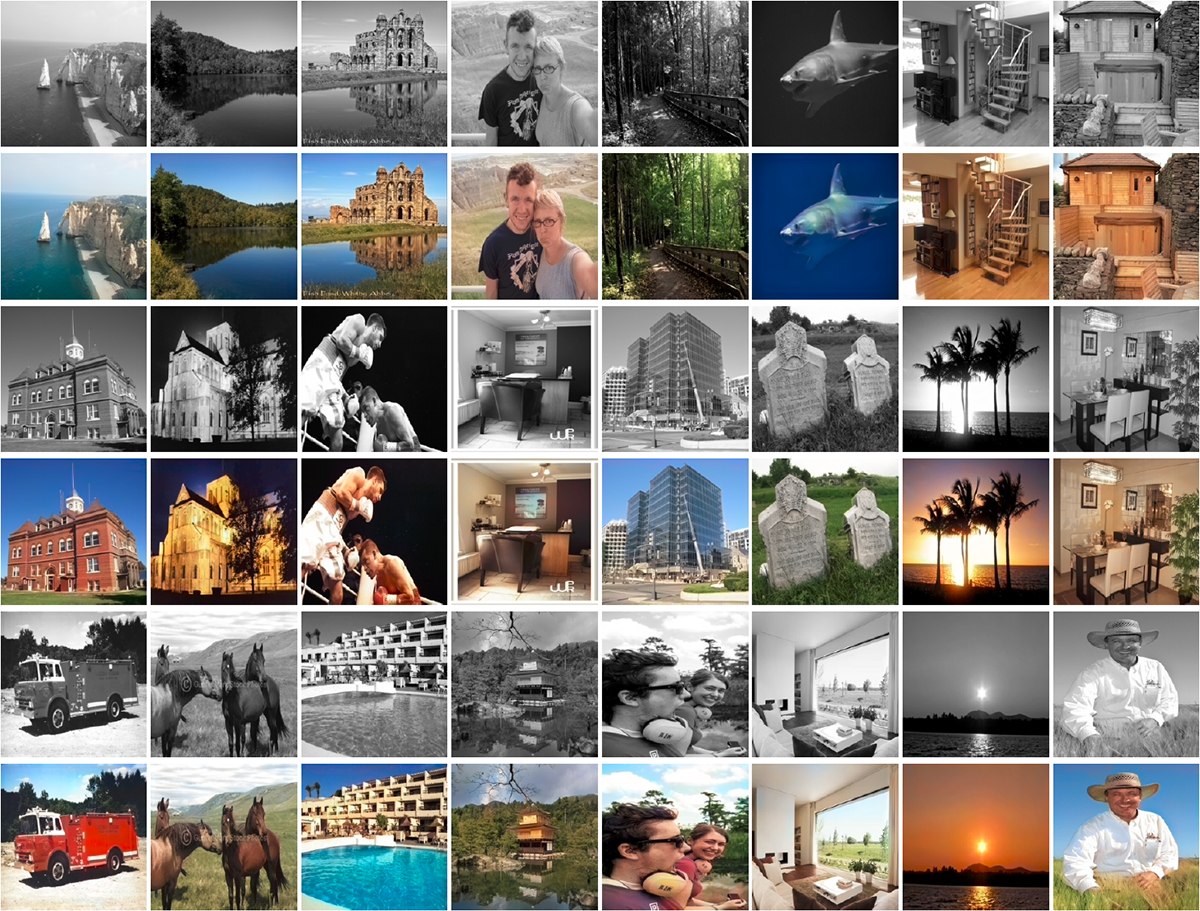Satoshi Iizuka*, Edgar Simo-Serra*, Hiroshi Ishikawa (* equal contribution)
This code provides an implementation of the research paper:
"Let there be Color!: Joint End-to-end Learning of Global and Local Image Priors for Automatic Image Colorization with Simultaneous Classification"
Satoshi Iizuka, Edgar Simo-Serra, and Hiroshi Ishikawa
ACM Transaction on Graphics (Proc. of SIGGRAPH 2016), 2016
We learn to automatically color grayscale images with a deep network. Our network learns both local features and global features jointly in a single framework. Our approach can then be used on images of any resolution. By incorporating global features we are able to obtain realistic colorings with our model.
See our project page for more detailed information.
Copyright (C) <2016> <Satoshi Iizuka, Edgar Simo-Serra, Hiroshi Ishikawa>
This work is licensed under the Creative Commons
Attribution-NonCommercial-ShareAlike 4.0 International License. To view a copy
of this license, visit http://creativecommons.org/licenses/by-nc-sa/4.0/ or
send a letter to Creative Commons, PO Box 1866, Mountain View, CA 94042, USA.
Satoshi Iizuka, Waseda University
[email protected], http://hi.cs.waseda.ac.jp/~iizuka/index_eng.html
Edgar Simo-Serra, Waseda University
[email protected], http://hi.cs.waseda.ac.jp/~esimo/
All packages should be part of a standard Torch7 install. For information on how to install Torch7 please see the official torch documentation on the subject.
First, download the colorization model by running the download script:
./download_model.sh
Basic usage is:
th colorize.lua <input_image> [<output_image>]
For example:
th colorize.lua ansel_colorado_1941.png out.png
- This model was trained on the Places dataset and thus best performance is for natural outdoor images.
- While the model works on any size image, we trained it on 224x224 pixel images and thus it works best on small images. Note that you can process a small imageto obtain the chrominance map and then rescale it and combine it with the original grayscale image for higher quality.
- Larger image sizes can give uneven colorings (limited by spatial support of the network).
- This is developed on a linux machine running Ubuntu 14.04 during late 2015.
- The provided code does not use GPU accelerated (trivial to change).
- Please note that the model is slow on large images (over 512x512 pixels) and may run out of memory. Demo should take around 2 GiB of peak RAM memory, system with 4 GiB or more of RAM is recommended.
- Provided model and sample code is under a non-commercial creative commons license.
If you use this code please cite:
@Article{IizukaSIGGRAPH2016,
author = {Satoshi Iizuka and Edgar Simo-Serra and Hiroshi Ishikawa},
title = {{Let there be Color!: Joint End-to-end Learning of Global and Local Image Priors for Automatic Image Colorization with Simultaneous Classification}},
journal = "ACM Transactions on Graphics (Proc. of SIGGRAPH 2016)",
year = 2016,
volume = 35,
number = 4,
}
